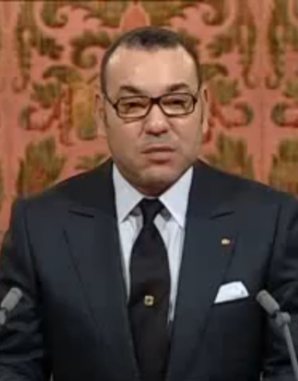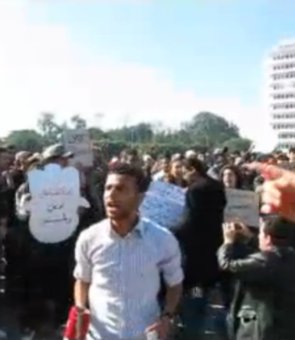|
Morocco Politics | Society | Human rights Morocco protesters encouraged by King's speech
The Moroccan King went far in compromising during his televised speech last night, addressing many of the issues raised by the pro-democracy movement. Mohammed VI previously had not been the main target for protesters, and his speech further increased his popularity.
Nevertheless, the first reactions by the protest movement have been widely positive. "Moroccans for Change" on social media during the day vividly have discussed the King's speech. Reactions had a wide span. "Did King Mohammed VI join the 20 February movement for change?" asks one. "It is a good start. It means he is listening, and negotiating," commented another. Some were quick to add that "pressure for reforms will continue." The most sceptical held that the King was never the problem, but the ruling "Makhzen" class, widely described as corrupt. "The Makhzen should start by the easiest deeds, which is freeing all political prisoners," one protester commented, noting that Morocco's dire human rights situation and systematic police brutality was not treated in the King's speech. Generally, however, the reception of King Mohammed's speech was rather enthusiastic, boding well for a peaceful negotiation process towards a more democratic Morocco. "Time will show," a protester commented, adding that the movement needed to keep up the pressure for reforms as the Makhzen would try to limit the extent of reform. By staff writers © afrol News - Create an e-mail alert for Morocco news - Create an e-mail alert for Politics news - Create an e-mail alert for Society news - Create an e-mail alert for Human rights news
On the Afrol News front page now
|
front page
| news
| countries
| archive
| currencies
| news alerts login
| about afrol News
| contact
| advertise
| español
©
afrol News.
Reproducing or buying afrol News' articles.
You can contact us at mail@afrol.com









